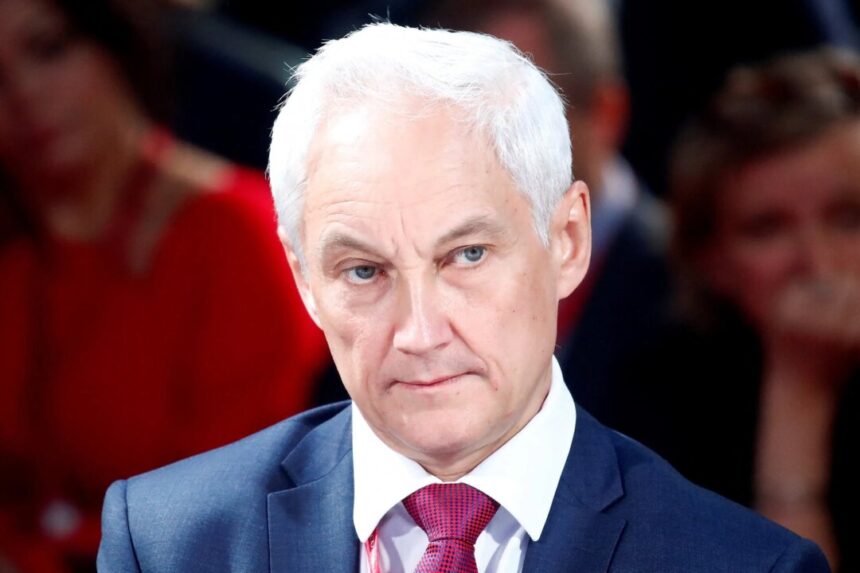It is widely anticipated that the outgoing defense minister will now assume the leadership of Russia’s influential Security Council.
Russian President Vladimir Putin has announced the appointment of a new defense minister to succeed Gen. Sergey Shoigu, 68, a long-time ally who has held the position since 2012.
Gen. Shoigu will be succeeded as defense minister by Andrei Belousov, a former minister of economic development and deputy prime minister.
Unlike his predecessor, Mr. Belousov, 65, comes from a civilian background but is knowledgeable in military economics.
“The president has decided that a civilian should head the defense ministry,” said Kremlin spokesman Dmitry Peskov on May 13.
“On today’s battlefield, those who are more open to innovation emerge as winners,” he added.
According to Mr. Peskov, the defense ministry must embrace new technologies and innovative methods to ensure economic competitiveness.
“For this reason, the president has chosen Mr. Belousov for the role,” he stated.
Ruslan Pukhov, director of the Moscow-based Center for Analysis of Strategies and Technologies, highlighted Mr. Belousov’s reputation for implementing cutting-edge innovations in state institutions.
“His innovative approach was a key factor in his recent appointment,” Mr. Pukhov said.
“Implementing new technologies in the military domain will be a primary focus moving forward,” he added.
Mr. Belousov previously served as economic development minister from 2012 to 2013 and later as Mr. Putin’s economic adviser before becoming deputy prime minister in 2020.
He is known to share Mr. Putin’s vision of strengthening the Russian state and military.
Mr. Belousov has been instrumental in advancing Russia’s drone program, particularly due to developments in the Ukraine conflict.
In his initial public statements following his selection, Mr. Belousov emphasized the need to improve conditions for Russian soldiers.
He addressed issues such as the transfer of personnel from civilian medical facilities to overcrowded hospitals and the bureaucratic hurdles hindering benefits for military personnel.
Mr. Belousov’s anticipated appointment also signifies Moscow’s aim to focus Russia’s economy, resilient against Western sanctions, towards the war effort.
His selection is likely to lead to increased scrutiny on defense spending following recent corruption allegations within the defense ministry.
Meanwhile, Gen. Shoigu is expected to assume leadership of Russia’s Security Council, succeeding Nikolai Patrushev.
Mr. Patrushev, who led the Security Council since 2008, is anticipated to move to another key role yet to be disclosed.
Mr. Putin’s recommendations are pending formal approval by parliament and are poised to be the most significant restructuring of Russia’s military command since the 2022 invasion of eastern Ukraine.
The anticipated changes align with an anticipated reshuffle by Mr. Putin, who secured a fifth presidential term with a considerable majority in the recent elections.
Various other key officials in Russia’s military and security establishment are expected to retain their current positions, including military chief-of-staff Valery Gerasimov and the directors of the Federal Security Service and Foreign Intelligence Service.
Sergey Lavrov, Russia’s longstanding top diplomat, is also expected to continue in his current role.
Reuters contributed to this report.
Please rewrite this sentence.
Source link




